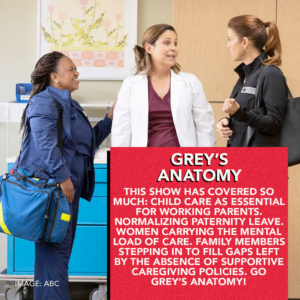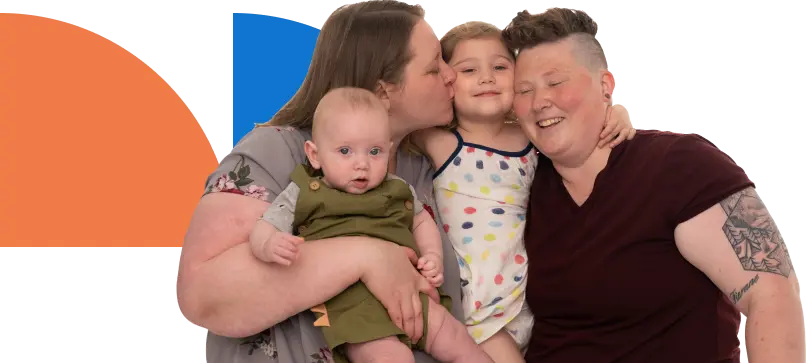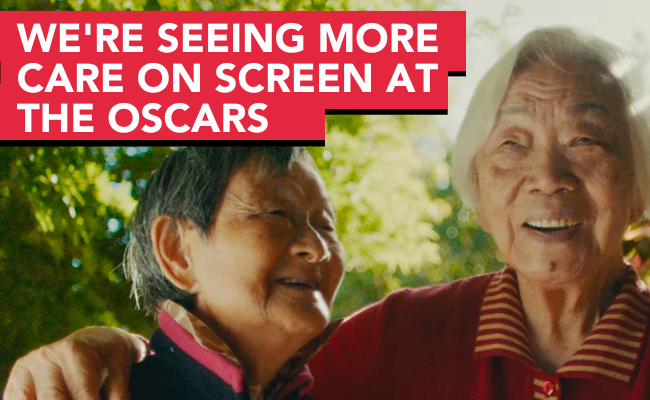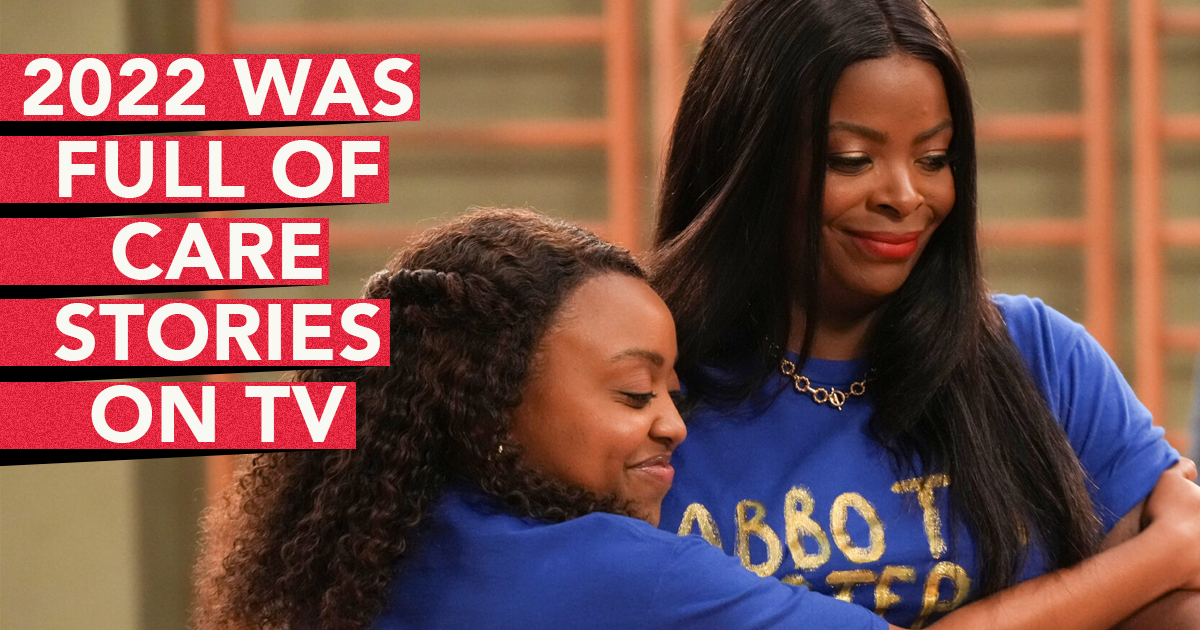

By Lydia Storie, Caring Across Generations and Vicki Shabo, Better Life Lab at New America
Many of us provide care and receive it from our loved ones, but this aspect of life often goes unspoken and unrecognized in our families, workplaces and media.
That started to change with the COVID-19 pandemic, which crumbled walls between our personal and work lives, and made more visible the challenges that millions of people in the U.S. face while navigating short- and long-term care needs related to aging, disability, and illness, as well as child care.
We are seeing more ongoing, open acknowledgement across media about the various ways that care factors into our daily lives, the balancing act of unpaid family caregiving, and how difficult it can be for families to access care from paid professionals at the same time as those workers are struggling to make ends meet for their own families.
This shift is apparent even within our entertainment culture, with more care-related storylines popping up in small and big ways across film and television over the past year.
We applaud these 10 TV series from 2022 that spotlighted care.
Different types of care relationships and challenges showed up across genres. From major story arcs centering care around illness, disability and end-of-life, to discrete scenes that delivered powerful rebuttals to outdated assumptions about gender, work and caregiving, each of these series help normalize care as a necessary part of life. Caution: spoilers ahead!
 1. From Scratch (Netflix)
1. From Scratch (Netflix)
Caregiving was the ultimate expression of love in this limited drama following the cross-cultural romantic journey of an American woman and Italian man. When serious illness struck in the fifth episode, “Bread and Brine,” the show didn’t shy away from the difficult realities of caregiving, with one character even saying explicitly that serving as a caregiver can be emotionally and physically taxing. A later episode, “Between the Fire and the Pan,” depicted scheduling challenges and the stress of medical management while also juggling work and child care and the value of a devoted care circle in which family and community members stepped in to add support. Most significantly, this episode also beautifully captured care at the end of life while remaining true to its essence as a love story.
2. Last Days of Ptolemy Gray (Apple)
The nuanced relationship between a protagonist with dementia and his new caregiver was central to this sci-fi whodunnit series. Throughout the show the protagonist received care —such as support with mobility and shopping, cooking and cleaning—but the show focused on the distinct friendship that developed between the two characters as they worked together to solve a mystery.
 3. This is Us (NBC)
3. This is Us (NBC)
The final chapter of NBC’s family drama series, season 6, delivered one of the most significant mainstream portrayals of intergenerational family caregiving in the context of Alzheimer’s. Episode 7 included the radical depiction of the person affected by the disease having agency over her own care planning, including making her own decisions about when, how, and from whom she received care. It modeled the kind of tough but important conversations that are essential for aging adults to have with their loved ones about end-of-life care. The season also followed multiple “sandwich generation” characters navigating care for their children and aging parents, and highlighted male caregivers.
 4. Call me Kat (FOX)
4. Call me Kat (FOX)
Comedy can make it easier to confront uncomfortable topics, such as the role reversal that comes with caring for one’s parents. The latest season of this sitcom saw the main character taking on some care responsibilities for her mother, who revealed she was losing her eyesight in S3:E2, “Call Me Skeeter Juice,” and found the humor in balancing that new dynamic on top of managing her own small business and trying to maintain a social and dating life.
 5. Our Italian Christmas Memories (Hallmark)
5. Our Italian Christmas Memories (Hallmark)
This heartwarming holiday movie focused on a family seeking to recreate a beloved recipe, but it also incorporated a care storyline. Three adult siblings stepped in to support their grandfather in order to allow their mother, his primary caregiver, to take respite on vacation. The siblings go through several highs and lows, including learning that their grandfather’s dementia is progressing, but together find joy in figuring out the family recipe as a team. Hat tip to adding humor via holiday-themed medication management using an advent calendar.
 6. As We See It (Apple)
6. As We See It (Apple)
This dramedy centered three autistic young adult roommates navigating the ups and downs of life, work, and romance, with the support of a professional care worker and their families. It was great to see a nuanced depiction of a sibling caregiving relationship and to see a disabled character care for his father when illness emerged.
 7. Abbott Elementary (ABC)
7. Abbott Elementary (ABC)
This public school sitcom often uses humor to reveal that things aren’t always what they seem, and that was the case for two storylines in the show’s first season related to care. In episode 9, we learned that the school’s principal—whom teachers saw as unreliable and flighty when she “took vacation” in the middle of the school year—in fact took leave to care for her grandmother who was dealing with dementia. In episode 10, a parent was hours late to a school meeting and the teacher assumed the parent didn’t care, when in reality the parent was stuck at work and could not leave. Both of these scenarios are all too common for family caregivers who face cultural expectations that make it difficult for them to be upfront about their personal responsibilities at work—and which often lead others to make incorrect assumptions.
 8. Reasonable Doubt (Hulu/Onyx Collective)
8. Reasonable Doubt (Hulu/Onyx Collective)
This legal drama flipped the script on traditional gender dynamics, with a father who takes on primary caregiving duties for his two children, such as meal preparation, hair care and health care. The show also depicts the tensions that arise between parents when work and family collide. From the first episode of the series, the female protagonist—a high-powered lawyer—asserts that her husband wants a separation because she puts her job first. In episode 7, their tensions around work, family and care come to a head when she says that her husband expects her simultaneously to be both the primary caregiver and breadwinner for the family but also wants her to put less emphasis on her career.
 9. Station 19 (ABC)
9. Station 19 (ABC)
The latest season of this firehouse drama, season 6, called out the double standard that women who work after becoming parents are seen as making “a choice” when men in the same position are not. In episode 4, a male firefighter, who is married to a female doctor, complains that his wife isn’t available to bring their daughter to Station 19’s community Halloween celebration because she’s working “by choice.” One of the female firefighters takes his characterization to task, explaining that work is just as central to his wife’s identity and well-being as it is to his and that women’s work is not a choice.
10. Grey’s Anatomy (ABC)
The two most recent seasons of TV’s longest-running medical drama have showcased the intersections of work, family and care in multiple ways in 2022. In season 18, episode 13, a doctor and patient discuss the difficulties of single parenting and the need for support, and the doctor says the only way she can work is because her employer—the hospital—provides child care. In the current season, season 19, episode 4 referenced a doctor on paternity leave, normalizing the idea that men can and should take time to care for a new child. And in episode 5, while on a road trip to related to abortion care, two doctors and a patient model and make visible in two separate conversations the usually invisible mental load that mothers carry: arranging child care, knowing where sports equipment is and more. For years, Grey’s Anatomy has also displayed the way in which family and community members often step in to provide care and the challenges of balancing work and family.
Honorable mentions go to HBO’s The Rehearsal<, for S1:E3 “Gold Digger,” which featured man who was proud to be his grandfather’s primary caregiver at the end of his life, and to Apple’s For All Mankind’s third season for a small storyline that integrated some challenges related to being a sandwich generation couple caring for an aging father with dementia.
Closing Thoughts
As we head into a new year, we hope more shows will include additional and deeper stories about care, name the challenges people face and the supports we need, call out outdated stereotypes, and bring work that’s often invisible and undervalued into the light, so that people can see their experiences reflected and honored. Media representations of care can help prompt families, friends, neighbors and policymakers to have long overdue conversations about how to navigate this universal part of life and the importance of investing in families and care.
Our organizations have created resources for storytellers who want to expand the representation of caregiving stories and stories that challenge cultural norms around gender, work, family and care. We’re available and eager to provide assistance in shaping and amplifying these stories. If you have a project that you’d like to discuss, please reach out to Caring Across Generations or Better Life Lab.
Lydia Storie is the Associate Director of Culture Change for Caring Across Generations, leading the organization’s engagement work with the entertainment industry. Prior to joining Caring Across, Lydia spent over a decade as a creative executive and producer in film and TV.
Vicki Shabo is a senior fellow at New America’s Better Life Lab, and launched the Lab’s entertainment-focused narrative and culture change practice in 2022. She is also a policy expert, advocate and strategist on issues related to workplace gender equity and care.
Both organizations are members of Storyline Partners, a collective of cultural consultants representing issues and community-based organizations to ensure accurate and authentic entertainment narratives and nuanced storytelling in popular culture.
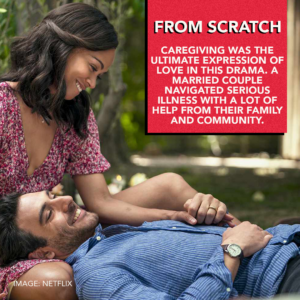 1. From Scratch (Netflix)
1. From Scratch (Netflix)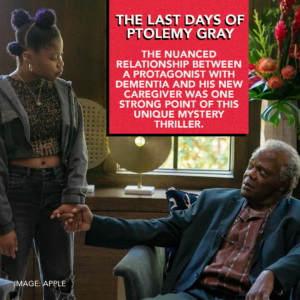
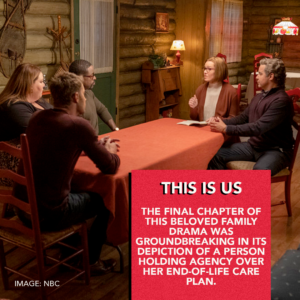 3. This is Us (NBC)
3. This is Us (NBC)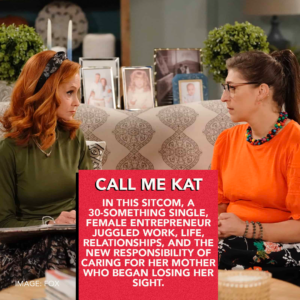 4. Call me Kat (FOX)
4. Call me Kat (FOX) 5. Our Italian Christmas Memories (Hallmark)
5. Our Italian Christmas Memories (Hallmark)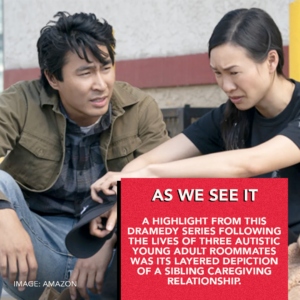 6. As We See It (Apple)
6. As We See It (Apple)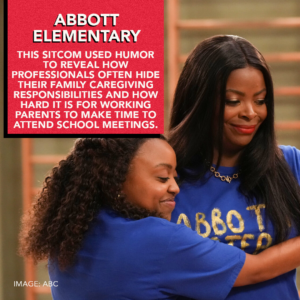 7. Abbott Elementary (ABC)
7. Abbott Elementary (ABC)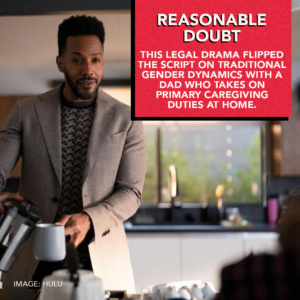 8. Reasonable Doubt (Hulu/Onyx Collective)
8. Reasonable Doubt (Hulu/Onyx Collective)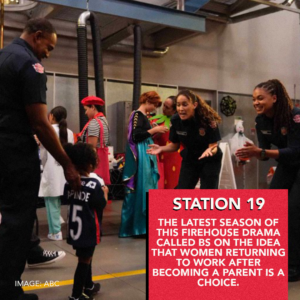 9. Station 19 (ABC)
9. Station 19 (ABC)